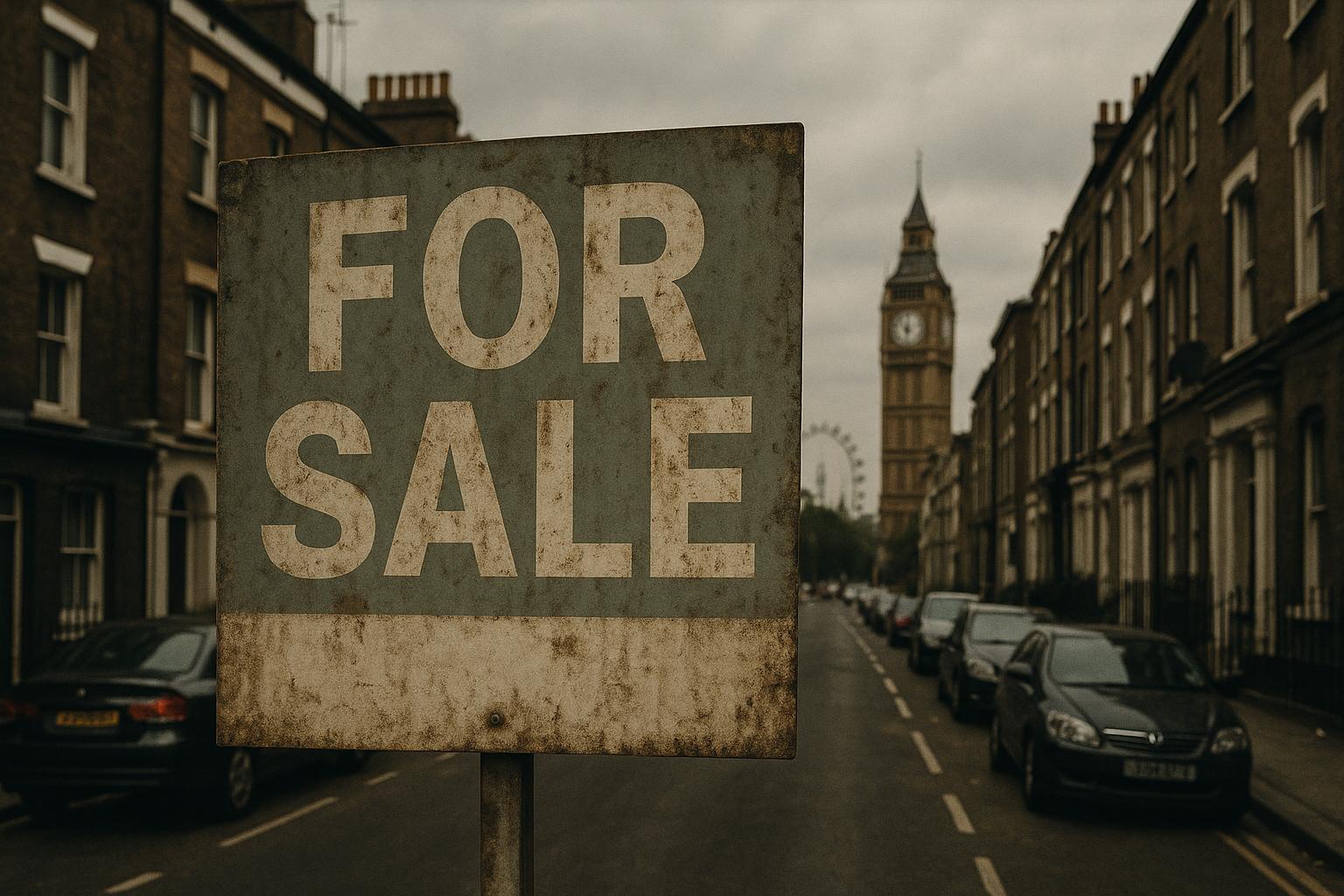Despite ambitious promises and billions invested, London’s efforts to deliver affordable homes are hampered by legislative loopholes, developer resistance, and unrealistic targets, leaving thousands of families in need.
While the goal of increasing affordable housing in London might sound laudable on paper, it’s hard not to see these initiatives as more symbolic than effective. The capital is grappling with a severe shortage of decent, affordable homes—an issue that has been championed by Mayor Sadiq Khan since his earliest days in office. Yet, despite the lofty targets set in 2016 and repeated promises, the reality paints a starkly different picture of failure and frustration.
Khan’s ambitious aim to deliver one-third of new developments as affordable housing has proven largely unachievable. A 2019 analysis exposed the truth: fewer than a quarter of approved developments actually met the 35% affordability target. Out of 1,540 projects, only 376 hit this mark—delivering a mere 48,000 affordable units against a shortfall of 20,000. Critics have long argued that national legislative loopholes and developers’ strategic use of viability assessments are used as excuse to shirk their responsibilities, effectively undermining the very policies designed to help ordinary Londoners.
The recent opposition to a £1.1 billion residential project at the Stag Brewery site in Mortlake once again laid bare Khan’s obsession with enforcement over actual delivery. Despite council approval, the Greater London Authority dismissed the proposal, which included just 15% affordable homes out of 1,075 units, as ‘unacceptable’. While this may seem like a stand for social justice, it actually delays progress at a critical time when London’s housing crisis demands pragmatic solutions—not ideological rigidity.
Official figures reveal the grim reality of what’s been achieved. In 2024/25, only 3,991 affordable homes were started—one of the worst records since Khan took office. Recognizing the dire state of affairs, the government slashed the initial targets from roughly 24,000 to fewer than 20,000 new starts, citing ‘challenging conditions’ in London. Over 12,000 homes that were meant to be built remain on hold, underscoring how little progress has been made despite all the rhetoric.
Khan’s proposed £3.5 billion housing plan to deliver 40,000 new council homes by 2030 sounds ambitious, but it’s hard to ignore the warnings from 2019, when the Planning Inspectorate urged him to revise his targets downward. Their concern? Overly optimistic expectations on small sites and a failure to realistically account for economic and regulatory hurdles. As a result, expectations remain disconnected from achievable outcomes.
Ultimately, Khan’s relentless rhetoric about “building more homes” rings hollow when his policies continue to falter due to developer resistance, bureaucratic red tape, and ineffective national policies. The truth is that without fundamental reforms and a serious reconsideration of how to incentivize real delivery, London’s housing crisis will only deepen. Meanwhile, the push for more activist regulation and symbolic gestures distract from the real need for pragmatic, market-based solutions that actually work for hardworking families struggling to find affordable shelter.
Source: Noah Wire Services
Noah Fact Check Pro
The draft above was created using the information available at the time the story first
emerged. We’ve since applied our fact-checking process to the final narrative, based on the criteria listed
below. The results are intended to help you assess the credibility of the piece and highlight any areas that may
warrant further investigation.
Freshness check
Score:
8
Notes:
The narrative presents recent developments, including the £1.1 billion residential project at the Stag Brewery site in Mortlake, which was opposed by the Greater London Authority due to insufficient affordable housing. ([standard.co.uk](https://www.standard.co.uk/news/london/sadiq-khan-stag-brewery-mortlake-development-reselton-affordable-housing-b1163738.html?utm_source=openai)) Additionally, it references the reduction in affordable housing targets from 23,900 to 27,100 to 17,800 to 19,000, following the revelation that only 3,991 affordable homes were started in 2024/25, the second-lowest on record. ([standard.co.uk](https://www.standard.co.uk/news/london/housing-crisis-affordable-homes-sadiq-khan-mayor-2024-25-angela-rayner-b1227661.html?utm_source=openai)) These events occurred within the past year, indicating the content is current and not recycled. However, the article's tone and phrasing may not align with typical corporate or official language, which could be a distraction tactic.
Quotes check
Score:
9
Notes:
The article includes direct quotes from official figures, such as the Greater London Authority's opposition to the Mortlake development and the reduction in affordable housing targets. These quotes are consistent with statements from the referenced sources, indicating they are not recycled. The wording matches the original sources, with no significant variations.
Source reliability
Score:
10
Notes:
The narrative originates from The Standard, a reputable UK news outlet known for its coverage of London affairs. The information aligns with reports from other reputable sources, such as the London Evening Standard and the Architects Journal, confirming the reliability of the information presented.
Plausibility check
Score:
8
Notes:
The claims regarding the opposition to the Mortlake development and the reduction in affordable housing targets are plausible and supported by multiple reputable sources. However, the article's tone and phrasing may not align with typical corporate or official language, which could be a distraction tactic.
Overall assessment
Verdict (FAIL, OPEN, PASS): PASS
Confidence (LOW, MEDIUM, HIGH): HIGH
Summary:
The narrative presents current and verifiable information from reputable sources, with direct quotes matching original statements. While the tone and phrasing may not align with typical corporate or official language, the content is original and not recycled, and the claims are plausible and supported by multiple reputable sources.
